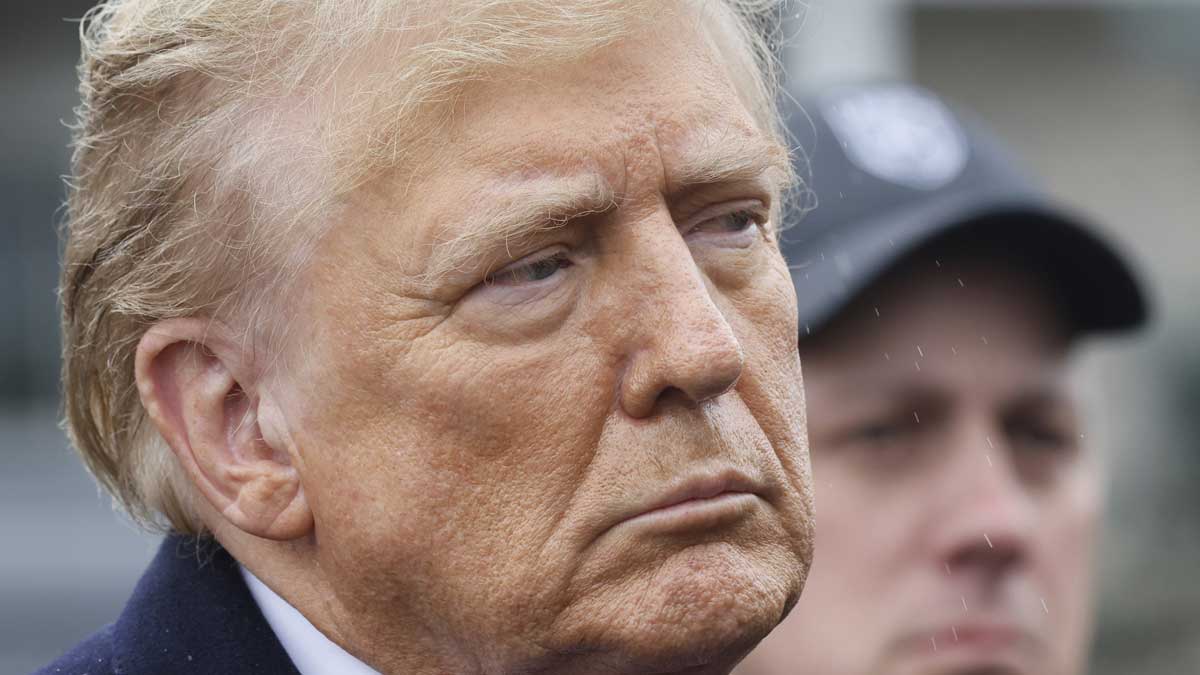- Home
- Billionaires
- Investing Newsletters
- 193CC 1000
- Article Layout 2
- Article Layout 3
- Article Layout 4
- Article Layout 5
- Article Layout 6
- Article Layout 7
- Article Layout 8
- Article Layout 9
- Article Layout 10
- Article Layout 11
- Article Layout 12
- Article Layout 13
- Article Layout 14
- Article Sidebar
- Post Format
- pages
- Archive Layouts
- Post Gallery
- Post Video Background
- Post Review
- Sponsored Post
- Leadership
- Business
- Money
- Small Business
- Innovation
- Shop
Recent Posts
NY AG Queries Trump’s $175M Bond, Demands Insurance Proof

The $175 million bond in former President Donald Trump’s civil fraud case has come under intense scrutiny. This follows a request from the New York attorney general’s office to the insurance company, Knight Specialty Insurance Company, to prove its financial capability to cover the bond. The attorney general’s office is concerned about the company’s financial soundness and the collateralization of the bond, especially since Knight Specialty Insurance Company is not admitted in New York.
Trump and his business associates posted the bond on Monday, after an appeals court reduced the amount he had to pay immediately while appealing the case. The original judgment required Trump and his co-defendants to pay over $464 million after being found liable for fraud. The bond, underwritten by Knight Specialty Insurance Company, was collateralized through a combination of cash and investment-grade bonds, according to Don Hankey, the billionaire chairman of the company.
In response to the attorney general’s filing, Trump and his co-defendants submitted an updated bond on Thursday, along with additional information about Knight’s financials. However, the attorney general’s office has indicated that this may not be sufficient to meet the requirements for companies providing bonds that are not admitted in New York. They have given Trump and his co-defendants 10 days to provide more detailed information about the bond and Knight’s financials.
If Trump and his co-defendants fail to provide the required information within the given time frame, the bond could be invalidated. However, Knight would still be responsible for paying the $175 million until Trump secures a new bond. A hearing has been scheduled for April 22 to address these issues, suggesting that any decision on the validity of the bond may not be made before then.
Trump is appealing the ruling in the civil fraud case, but the timeline for the appeal is uncertain. While the appeals court has allowed him to post the $175 million bond during the appeal process, Trump and his co-defendants would still be liable for the full amount if they lose the appeal. The amount owed is increasing daily, as it accrues interest at a rate of nine percent per year, amounting to more than $111,000 per day for Trump alone. Interest will continue to accrue until the full amount is paid off, regardless of the bond and the ongoing appeal.
In its updated bond, Knight reported a surplus to policyholders of $138 million, which is less than the $175 million that Trump owes. This raises concerns about the company’s ability to cover the full amount if Trump’s bond is not fully secured through collateral or if he is unable to pay when required. The potential consequences of Knight’s financial stability being at risk include the possibility of the company’s cash being wiped out in order to pay off Trump’s debt.
Overall, the situation surrounding Trump’s bond in the civil fraud case is complex and has significant implications for both Trump and the insurance company. The outcome of the attorney general’s inquiry and the subsequent hearing could have far-reaching consequences for the future of the case and the parties involved.
Recent Posts
Categories
- 193cc Digital Assets2
- 5G1
- Aerospace & Defense46
- AI37
- Arts3
- Banking & Insurance11
- Big Data3
- Billionaires449
- Boats & Planes1
- Business328
- Careers13
- Cars & Bikes76
- CEO Network1
- CFO Network17
- CHRO Network1
- CIO Network1
- Cloud10
- CMO Network18
- Commercial Real Estate7
- Consultant1
- Consumer Tech180
- CxO1
- Cybersecurity68
- Dining1
- Diversity, Equity & Inclusion4
- Education7
- Energy8
- Enterprise Tech29
- Events11
- Fintech1
- Food & Drink2
- Franchises1
- Freelance1
- Future Of Work2
- Games141
- GIG1
- Healthcare78
- Hollywood & Entertainment186
- Houses1
- Innovation42
- Investing2
- Investing Newsletters4
- Leadership65
- Lifestyle11
- Manufacturing1
- Markets20
- Media193
- Mobile phone1
- Money13
- Personal Finance2
- Policy567
- Real Estate1
- Research6
- Retail1
- Retirement1
- Small Business1
- SportsMoney33
- Style & Beauty1
- Success Income1
- Taxes2
- Travel10
- Uncategorized8
- Vices1
- Watches & Jewelry2
- world's billionaires418
Related Articles
Trump Moves $4B Stake in Truth Social Parent, Stock Drops 6%
Donald Trump recently transferred his 57% stake in Trump Media & Technology...
By 193cc Agency CouncilDecember 20, 2024House Rejects Trump-Backed Funding Bill, Shutdown Looms
The U.S. House of Representatives rejected a new government funding bill on...
By 193cc Agency CouncilDecember 20, 2024Trump Named Time’s Person of the Year for Second Time
On Thursday, Time magazine honored Donald Trump as its “Person of the...
By 193cc Agency CouncilDecember 12, 2024Meta Donates $1 Million to Trump’s Inaugural Fund
Meta, the parent company of Facebook and Instagram, has confirmed a $1...
By 193cc Agency CouncilDecember 12, 2024















Leave a comment